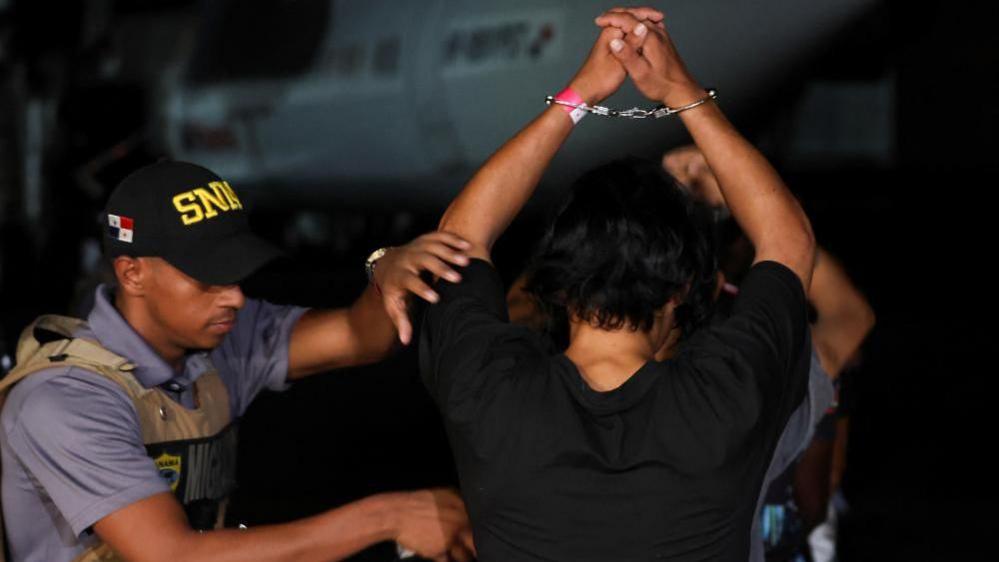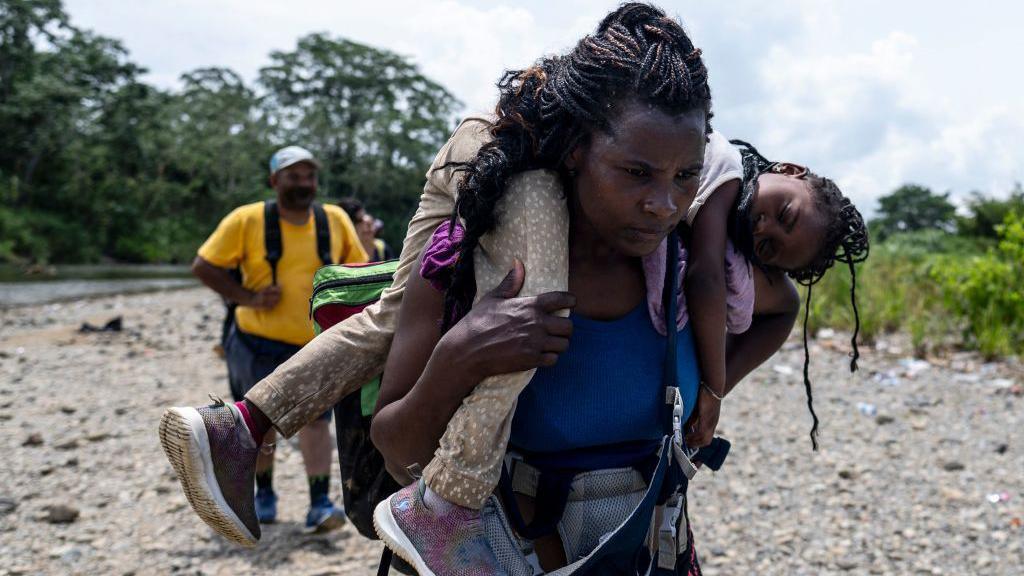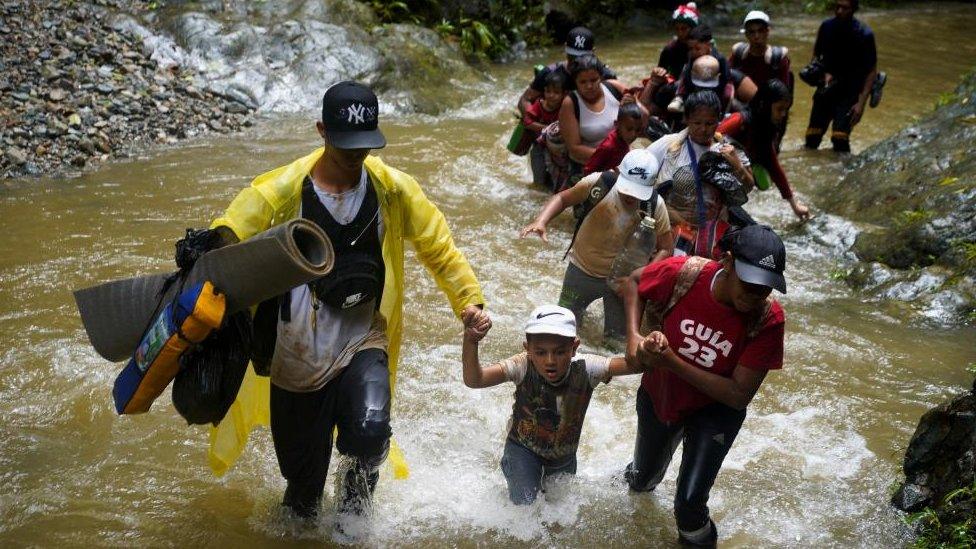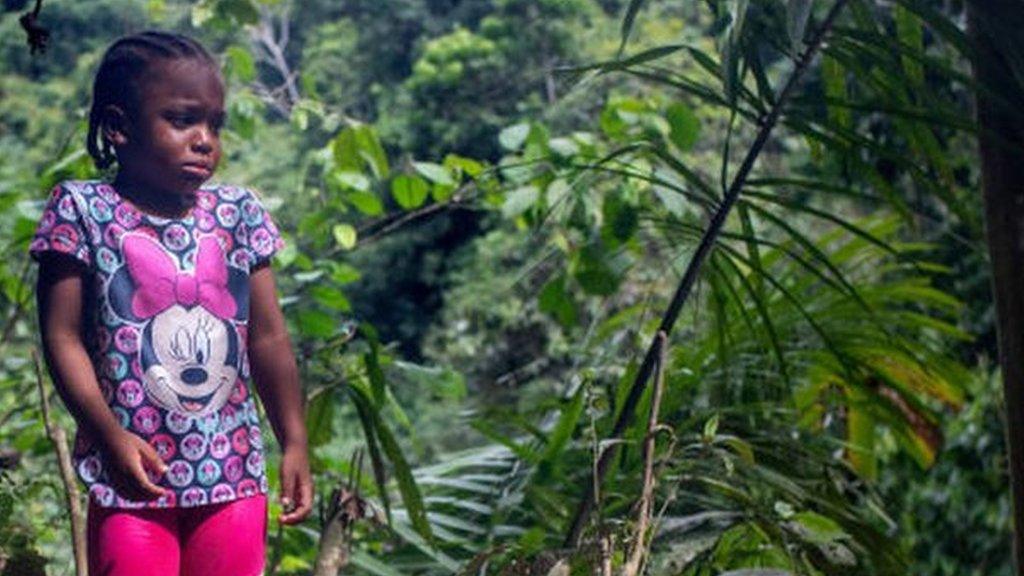Panama starts returning migrants on US-funded flights

Colombians with criminal records were made up the first group sent back
- Published
Panama on Tuesday started repatriating undocumented migrants on flights financed by the United States.
The move comes less than two months after José Raúl Mulino was sworn in as Panama's president.
Mr Mulino campaigned on a promise to "close" the Darién Gap, the dangerous stretch of jungle which more than half a million migrants crossed last year on their way north from South America.
The Biden administration said it had agreed to pay for the flights as part of its efforts to deter irregular migration.
A group of 29 Colombians with criminal records were the first to be returned on Tuesday.
Under an agreement jointly signed by the Panamanian foreign minister and US Homeland Security Secretary Alejandro Mayorkas, the US has committed to helping Panama with $6m (£4.6m) for equipment, transportation and logistics to "remove foreign nationals who do not have a legal basis to remain in Panama".
Immigration is a hot topic ahead of November's presidential election in the US and the stream of migrants arriving at its border with Mexico is being closely monitored.
Trump attacks Harris over US border policing – was it her job?
- Published14 August 2024
Could Trump really deport one million immigrants?
- Published18 November 2024
The agreement with Panama aims to drive down the number of people making it to the US border by stopping them further south.
The Darién Gap, an expanse of jungle which straddles Colombia and Panama, is a natural bottleneck for those heading from South to North America.
In 2023, an estimated 520,000 people made the perilous journey on foot, many of whom had to pay gangs who prey on those embarking on the crossing.
President Mulino, who has promised to reduce the number of migrants transiting through Panama, described their situation as "sad".
"Most of them are from Venezuela," he explained. "They're human beings... there are families torn apart, children of five or six years of age whose parents have died during the crossing. We don't even know who they are or what their names are."

Crossing the Darién Gap on foot takes several days and is fraught with danger
The president had earlier said that the flights would in the first instance take migrants to Colombia, the country from which they entered Panama.
It is not yet clear if flights will be organised from Colombia to repatriate them to their homelands.
According to Panamanian government figures, Venezuelans form the largest share of migrants trekking through the Darién Gap, followed by Colombians, Ecuadoreans and Haitians.
There is widespread concern in the region that the flow of those fleeing Venezuela could increase in the months to come if the political crisis triggered by the announcement of disputed election results is not solved.
Ahead of the election, polls had suggested that large numbers of Venezuelans were planning on migrating should President Nicolás Maduro win.
Tension has been high since he was declared the winner by the government-dominated National Electoral Council, with the result being rejected as fraudulent by the opposition and questioned by the US, the EU and many Latin American countries.
Panamanian President Mulino earlier this month offered Mr Maduro "safe passage" so that the Venezuelan leader could leave to a third country, but his offer was rejected by Mr Maduro, who warned his Panamanian counterpart not to "mess" with Venezuela.
- Published1 August 2023

- Published24 August 2022
